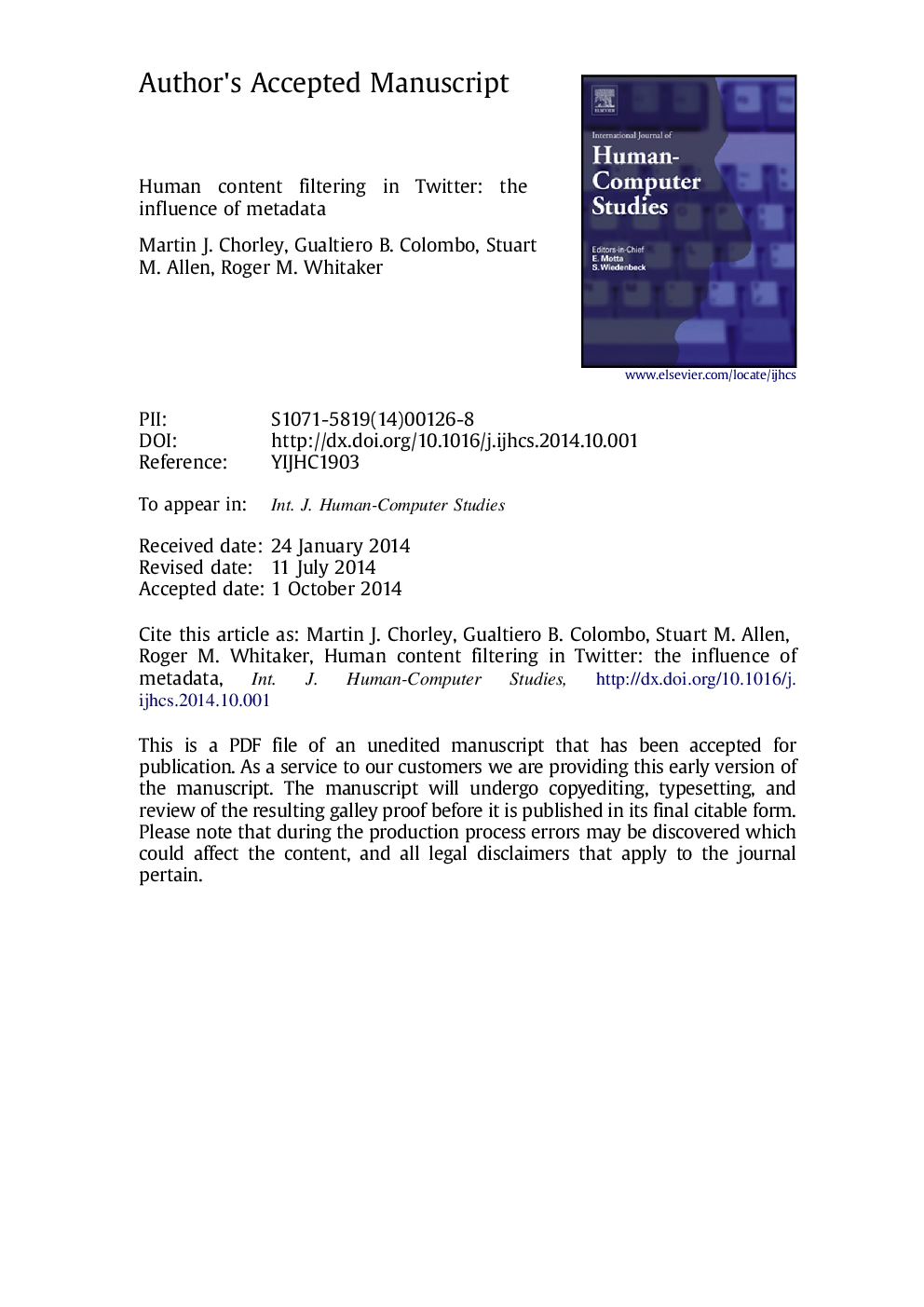| Article ID | Journal | Published Year | Pages | File Type |
|---|---|---|---|---|
| 6861092 | International Journal of Human-Computer Studies | 2015 | 27 Pages |
Abstract
In this research we have conducted an open online experiment in which participants are shown quantitative and qualitative meta-data describing two pieces of Twitter content. Without revealing the text of the tweet, participants are asked to make a selection. We observe the decisions made from 239 surveys and discover insights into human behaviour on decision making for content selection. We find that for qualitative meta-data consumption decisions are driven by online friendship and for quantitative meta-data the largest numerical value presented influences choice. Overall, the 'number of retweets' is found to be the most influential quantitative meta-data, while displaying multiple cues about an author׳s identity provides the strongest qualitative meta-data. When both quantitative and qualitative meta-data is presented, it is the qualitative meta-data (friendship information) that drives selection. The results are consistent with application of the Recognition heuristic, which postulates that when faced with constrained decision-making, humans will tend to exercise judgement based on cues representing familiarity. These findings are useful for future interface design for content filtering and recommendation systems.
Related Topics
Physical Sciences and Engineering
Computer Science
Artificial Intelligence
Authors
Martin J. Chorley, Gualtiero B. Colombo, Stuart M. Allen, Roger M. Whitaker,
